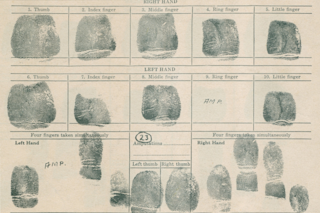The 2008 election will be one for the history books. But it may also be one for the psych texts, with its revealing look inside how politics brings out the basest, most reptilian impulses in the depths of the human mind. We know that affiliation with a political party or group goes deeper than just your thoughts on abortion or free markets—how you cast a ballot is even rooted in neuroscience. And more research is being done concerning the impact of past leaders' race and gender on our psyche from childhood on. Plus the gallons of mud slung, not to mention the race-baiting, finger pointing, and infighting, are enough to provide behavioral psychologists with research fodder for decades. Meanwhile, reporters from all over the campaign trail are bewailing the seeming total lack of rational thought that goes into many voters' ballot-casting decisions. Well, as the New Scientist reports, we may be asking a little too much of humanity when we expect every voter (or even a plurality) to form an opinion of the candidates based on carefully-reasoned and factually-grounded analysis of their positions and backgrounds. In other words: Our brains just aren't built that way. The human mind arranges things into categories, with limited storage space for information on each one. What we don't know, we tend to fudge through associations that we do know. For instance, if you don't know which way McCain voted in the 2003 Senate vote on Iraq, you do know that he's a Republican, and most Republicans have supported the war. So whether or not he voted for or against the pro-war bill becomes irrelevant—your brain has already filled in the gap. Even then learning the correct information isn't enough to dislodge the initial connection from your mind, according to research: Once you've decided that McCain is a "maverick" who goes against the grain, all the evidence in the world that he consistently votes with his party won't necessarily change your mind. It's safe to say that, whether or not they've read the latest neuroscientific research, political strategists have known about this capacity (or lack thereof) of the mind for years—and this time around, they've been exploiting the hell out of it.
Political Misinformation (Or Simple Lack of Thought) Is a Product of Our Brains
Explore the impact of past leaders' race and gender on our voting psychology and decision-making processes during elections.
More on Discover
Stay Curious
SubscribeTo The Magazine
Save up to 40% off the cover price when you subscribe to Discover magazine.
Subscribe












